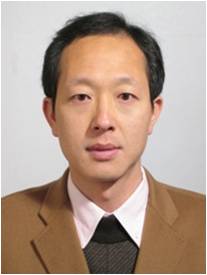 Prof. Shiyong Liu was born in Hubei Province, China, in 1972. He obtained his B. S. degree in 1993 and M. S. degree in 1996 from Wuhan University, majoring in environmental chemistry and polymer chemistry, respectively. After obtaining his Ph.D. degree in 2000 at Fudan University under the supervision of Prof. Ming Jiang, he spent three and a half years at University of Sussex and University of Delaware as a postdoctoral fellow, working with Prof. Steven P. Armes (currently at University of Sheffield) and Prof. Eric W. Kaler (currently at University of Minnesota), respectively. Since 2004, he has been a professor of Polymer Science and Engineering at the University of Science and Technology of China. He is recipient of 100 Talents Program (CAS, 2004), Distinguished Young Scholars Award (NSFC, 2004), Cheung Kong Professor Award (Ministry of Education of China, 2009), Chinese Chemical Society-Royal Chemical Society Young Chemist Award (2009), Young Faculty Achievement Award of USTC Alumni Foundation (2009), and Young Scientist Award (CAS, 2012). He served in the Editorial Advisory Board for Macromolecules (ACS, 2008-2010). He has served as the Head of Department of Polymer Science and Engineering since 2004 and the Director of CAS Key Laboratory of Soft Matter Chemistry since 2010. He has published over 170 peer-reviewed journal papers and 6 book chapters with a total citation of over 5000 and an H-index of 40. His current research interests include the design and synthesis of functional polymeric materials, colloids, and stimuli-responsive polymeric assemblies with controlled properties for applications in imaging, theranostics, and drug/gene nanocarriers.
Prof. Shiyong Liu was born in Hubei Province, China, in 1972. He obtained his B. S. degree in 1993 and M. S. degree in 1996 from Wuhan University, majoring in environmental chemistry and polymer chemistry, respectively. After obtaining his Ph.D. degree in 2000 at Fudan University under the supervision of Prof. Ming Jiang, he spent three and a half years at University of Sussex and University of Delaware as a postdoctoral fellow, working with Prof. Steven P. Armes (currently at University of Sheffield) and Prof. Eric W. Kaler (currently at University of Minnesota), respectively. Since 2004, he has been a professor of Polymer Science and Engineering at the University of Science and Technology of China. He is recipient of 100 Talents Program (CAS, 2004), Distinguished Young Scholars Award (NSFC, 2004), Cheung Kong Professor Award (Ministry of Education of China, 2009), Chinese Chemical Society-Royal Chemical Society Young Chemist Award (2009), Young Faculty Achievement Award of USTC Alumni Foundation (2009), and Young Scientist Award (CAS, 2012). He served in the Editorial Advisory Board for Macromolecules (ACS, 2008-2010). He has served as the Head of Department of Polymer Science and Engineering since 2004 and the Director of CAS Key Laboratory of Soft Matter Chemistry since 2010. He has published over 170 peer-reviewed journal papers and 6 book chapters with a total citation of over 5000 and an H-index of 40. His current research interests include the design and synthesis of functional polymeric materials, colloids, and stimuli-responsive polymeric assemblies with controlled properties for applications in imaging, theranostics, and drug/gene nanocarriers.
Research group web site: http://staff.ustc.edu.cn/~sliu.
What was your inspiration in becoming a chemist?
My curiosity to explore and experience new things drives me to love chemistry. “To create new substances” is always exciting, as they are might be associated with previously unknown properties and un-realized functions. I enjoy the process of solving synthetic challenges and understanding underlying mechanisms.
What was the motivation to write your Polymer Chemistry article? (DOI: 10.1039/C2PY20701J)
Since 2004, we have worked on the synthesis of block copolymers of nonlinear chain topologies, which are responsive to pH and temperature and ionic strengths, focusing on the triggered assembly and disassembly and especially self-assembling kinetics via the stopped-flow technique. In the past few years, we have been working on responsive polymer-based functional materials with imaging, sensing, theranostics, and nanomedicines. In this context, to design and synthesis of polymers responsive to biologically relevant milieu (e.g., mildly acidic pH, redox potential, enzymes, etc.) is quite crucial. This motivated us to write this Polymer Chemistry article. We are currently working on bioresponsive supramolecular assemblies of polymer-drug conjugates, which can actively interact with specific tissues, micro-environments, cells, and subcellular components.
Why did you choose Polymer Chemistry to publish your work?
Polymer Chemistry is an emerging high-quality journal in synthetic polymer chemistry. Its scope fits well the current trends of functional polymeric materials. We need to acknowledge that although several fundamental scientific problems in polymer science, specifically in polymer physics, still exist, they do not represent the future directions of polymer science. Problem-solving based on challenges encountered in functional materials and their applications is more exciting and rewarding.
In which upcoming conferences may our readers meet you?
8th International Symposium on Stimuli-Responsive Materials (October 21-23, 2012; Santa Rosa, CA).
Our CAS Key Laboratory of Soft Matter Chemistry is organizing “The 3rd Sino-French Bilateral Seminar on Macromolecules and Soft Matter”, which will be held in Hefei, China on September 26-29, 2012. Website: http://polymer.ustc.edu.cn
How do you spend your spare times?
I am trying to spend more time with my family. My 6 year old son and I go to an aero-modeling course every Saturday afternoon. Watching TV sport games and reading are also good choices. I have kept the habit of browsing through local newspapers before getting to sleep every night, and this does not depend on whether it is 11:00 PM or 2:00 AM.
Which profession would you choose if you were not a scientist?
I might have been an economist, investment advisor, or businessman; I am quite good at “mathematics”.










